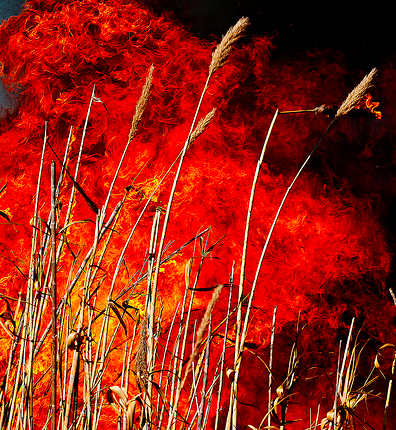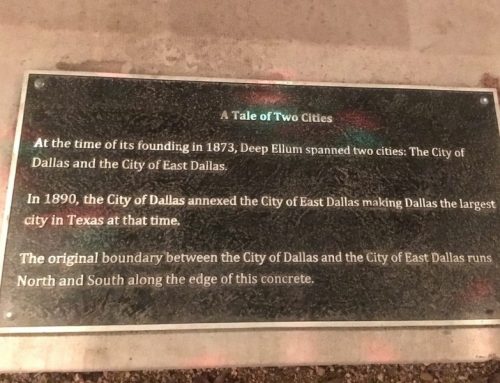
Dallas Morning News Clip
On July 8 1860, a series of mysterious fires broke out in North Texas. Dallas was on fire, hit harder than other counties such as Denton and Pilot Point.
Men worked, to little avail, to quench flames shooting from a fresh-built drugstore and a three-story brick Tavern, the Morning News Reported almost 80 years later in an article entitled “History Fails to Find Cause of Fire That Destroyed Dallas 79 Years Ago …”
It reportedly was 110 degrees in Dallas that day, making business owners physically ill in addition to heartsick. The inferno took out some 15 companies altogether. “A deathlike stillness hung above the cooling grey ashes,” the News reported.
At first, the leaders of the affected communities attributed the fires to a combination of the terribly hot summer as well as the introduction into stores of volatile phosphorous matches.
Indeed, subsequent experience with “prairie matches” in Denton satisfied the citizens of that town that spontaneous combustion was the probable cause of the fire there.
Men gathered in small groups to discuss the cause and what to do about it. Almost immediately conversations turned to “the Negroes” and two abolitionist preachers known to be “in the neighborhood.”
Later as men gathered at the surviving Dallas courthouse, they discussed hanging every black person in the county. They instead hung three. On the banks of the Trinity, planters from miles away brought their slaves to witness the executions.
Thus, chillingly, the aforementioned headline concluded, “three hanged” for their connection to the fire. But things got much worse for abolitionists.
Charles R. Pryor of the Dallas Herald blamed the wreckage on an abolitionist plot “to devastate, with fire and assassination, the whole of Northern Texas …” By the end of July, communities and counties throughout North and East Texas had established vigilance committees to root out and punish the alleged conspirators. By the time the panic subsided in September, between thirty and 100 blacks and whites had been killed by the vigilance committees, according to the Texas Historical Society.
“Often called ‘the Texas Troubles’ by the press, the Texas slave panic of 1860 helped prepare Texans and other Southerners to leave the Union.”
Indeed a 1960 article asserts the “abolitionists’ fires” sparked the beginning of the Civil War.
To this day even the most basic of questions remains open to debate: “Were there real plots that threatened to overthrow the institution or only panics roused by self-serving politicians?”






Leave A Comment